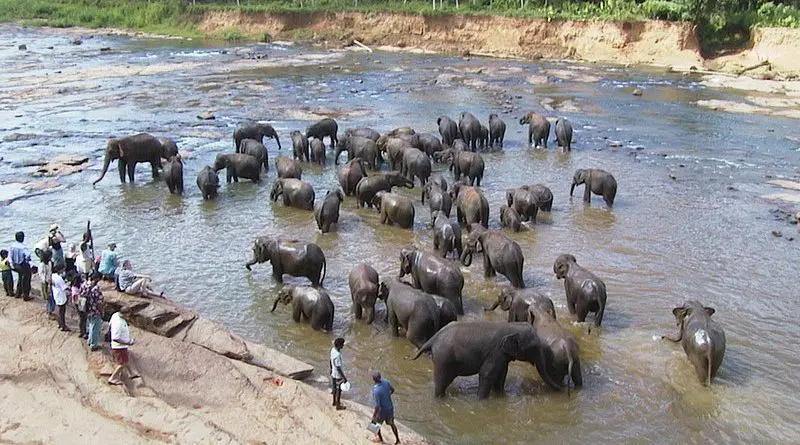Sri Lanka: Can New Animal Protection Laws Save Animals From Exploitation In Tourism Industry? – OpEd
Elephants are considered to be amongst the most intelligent animals in the world. Sadly, their playfulness and ability to learn are frequently abused and elephants are used as tools to generate profit.
In recent years, Sri Lanka has been becoming an increasingly popular tourist destination. While that might be a good thing for the country’s economy, it certainly is not beneficial to Sri Lankan elephants.
That is because elephant rides have become one of the most popular tourist activities in the country. For many, riding elephants or watching performances that feature them are the highlights of their trip. Not many visitors are aware of the consequences of this practice, however.
Riding elephants bears many harms
Behind what tourists see as an amusing, once in a lifetime experience hides extreme cruelty and exploitation of animals. Using elephants for tourism and threatening them into obedience means depriving them of their freedom. They are kept in captivity, isolated from other elephants and often chained, not being able to move around freely. Elephants are social animals, capable of forming emotional connections with other members of their herd. If one of them is killed or taken away, others can be negatively affected.
To meet tourist demand, elephants are often forced to work long hours in extreme heat. They get very few breaks as tourists often line up waiting for their turn to ride the animals.
Even the equipment used during the rides is harmful to elephants. Tourists sit on them in howdahs, metal chairs attached to their backs. During the rides, the seats rub elephants’ skin and cause blisters that can lead to serious infections. To control elephants during rides, mahouts use bullhooks, which are stout poles with metal hooks at one end. That physically harms the animals.
What tourists also overlook is the fact that before elephants can be used for rides, they have to undergo violent training sessions. Many elephant sanctuaries or wildlife parks claim to take good care of their animals. Still, if they offer elephant rides, it usually means that a certain degree of exploitation and abuse is involved.
The new rules are a step in the right direction
Last month the government of Sri Lanka introduced a number of regulations designed to protect the elephants.
The new law also requires elephant owners to make sure that the animal they own has an identity card and gets two-and-a-halh-hour long bath each day. On top of that, owners have to have at least three acres of land so that the animal can move around reely, and baby animals cannot be separated from their mothers and used for work. The last rule aims to solve the problem of little elephants being stolen from wildlife parks and then exploited by individuals working in the tourism industry.
The new regulations also say that no more than four people can ride an elephant at once, and riders can no longer ride elephants after having consumed alcohol.
Those who do not comply with the new laws risk having their elephants taken away and can face up to three years in prison.
The goal of the regulations is to prevent elephants from being harmed and abused with the sole purpose of entertaining tourists.
But can the new laws actually make a difference?
Many wonder whether the new rules can improve the conservation efforts in Sri Lanka or whether the exploitation of elephants will take on different forms and continue. When the rules were first announced, they gained a lot of positive press. Now, however, conservationists say that the enforcement of these rules will be extremely challenging and that punishments for the violation of them are not clear enough.
Moreover, as long as elephants are kept in captivity, abuses and exploitation will keep occurring. The new laws represent a step in the right direction but to truly protect the animals, using them for entertainment purposes would have to be banned entirely.
Sri Lanka has been struggling with the problem of people forging documents to purchase elephants illegally for years. If the practice continues, no wildlife protection laws will be able to save the animals. Hence, better monitoring of alleged traffickers is necessary.
It still remains to be seen whether those who own elephants will actually follow the new rules. What is certain, however, is that Sri Lanka’s elephants are considered critically endangered and, if the regulations are not fully implemented, their population will keep decreasing.
*About the author: Katarzyna Rybarczyk is a Political Correspondent for Immigration Advice Service, an immigration law firm based in the UK but operating globally. Through her articles, she aims to raise awareness about security threats worldwide and the challenges facing communities living in low and middle-income countries.

